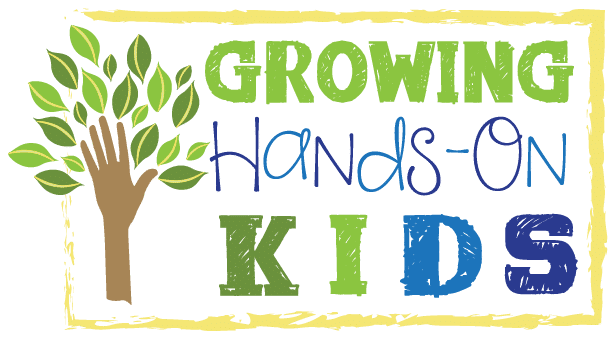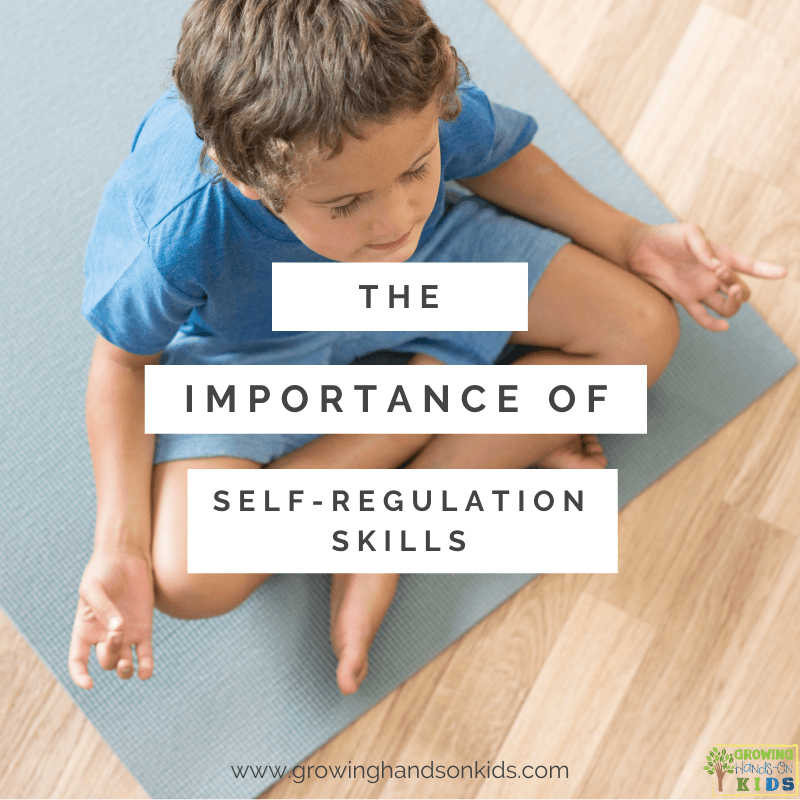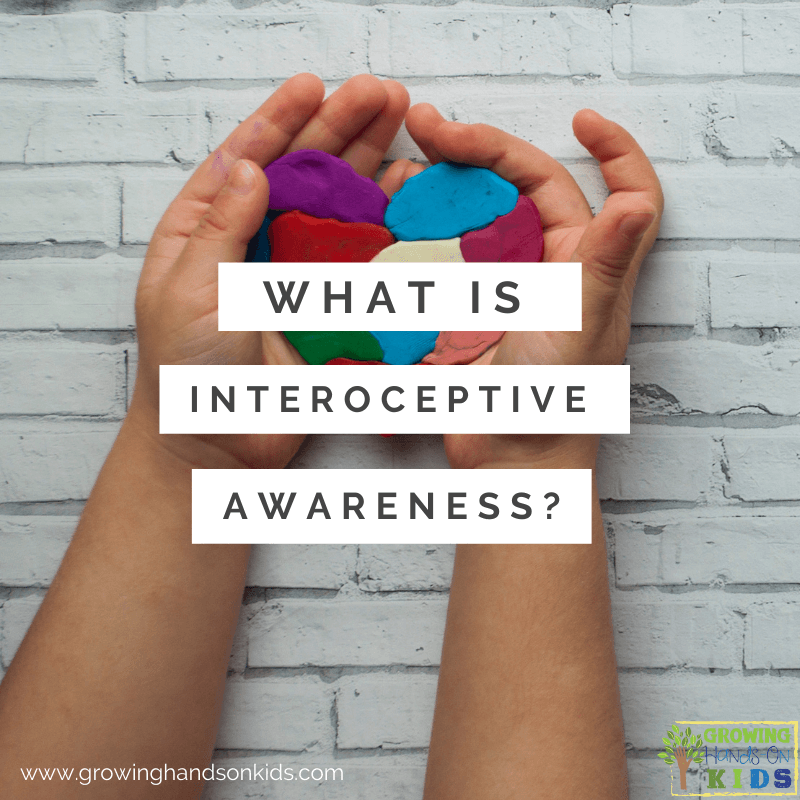The Importance of Self-Regulation Skills for Children
Affiliate and Referral links are used below to promote products I love and recommend. I receive a commission on any purchases made through these links. Please see my disclosure policy for more details. As an Amazon Associate, I earn from qualifying purchases.
Self-regulation is a very important skill for all of us to have. But children are not born with this skill. It is something that they must see modeled and something that they learn over time. So let's take a look at the importance of self-regulation skills for children.
What is Self-Regulation?
The development of effective self-regulation is recognized as fundamental to an individual’s functioning, with development during early childhood often considered an early marker for later life successes” (Montroy, Janelle J et al. 2016).
Self-regulation is the ability to manage and modify our emotions and rapidly develops between the ages of 3 and 7, or early childhood.
This requires many skills that work together for a child to be able to self-regulate. This includes:
– sensory processing
– emotional regulation
– attention and concentration
– executive function
– planning and sequencing
– receptive language skills
– social skills
– working memory
We are going to take a closer look at self-regulation, how to tell if a child may be struggling with self-regulation, and activities and interventions to address these concerns.
Self-Regulation Challenges
Self-regulation challenges can affect many aspects of a child's day. Let's take a look at what some of those may look like.
This list is for informational purposes only and does not mean and should not be used to say a child has a regulatory disorder or any other sort of mood or mental disorder.
If you do suspect any of this for your child, PLEASE talk to a licensed professional and your child’s doctor.
What this list will do is help you to look and possibly recognize if your child is struggling with self-regulation skills and give you some talking points for discussing with a professional.
Self-regulation challenges can look like:
- Poor emotional adjustment
- Poor impulse control
- Difficulty focusing/refocusing on tasks
- Difficulty regulating strong emotions such as anger, frustration, embarrassment, and excitement
- Difficulty calming down after something exciting or upsetting
- Difficulty regulating their moods
- Withdrawn and has trouble interacting with others
- Difficulty with communication skills or social skills for their age
- Behave in dangerous ways to themselves or others
- Difficulty with self-soothing
- Do not tolerate changes well
- Challenges with sleep, eating, sensory processing
It is important to recognize these challenges, talk to a professional about them, and also find ways to help our children self-regulate.
Why is Self-Regulation Important?
But why is this a really important skill for children to have?
Well, here are a few reasons:
- Improved emotional intelligence
- Cope better with stress
- Improved learning outcomes at school
- Become more independent
- Better relationships with others
- Develop self-discipline skills
- Ability to control impulses
- Staying focused on goals
- Adapting to changes in the environment
It’s important to remember that this skill is not something that your child will magically master one day. It is a journey and skill that we all need to work on daily.
A huge part of self-regulation development starts with co-regulation.
Co-Regulation & Self-Regulation Connection
Self-regulation is higher-level thinking that develops over time. Young children are still learning how to self-regulate through co-regulation.
When you think about the baby and infant years, they are filled with co-regulation. Our baby is crying and upset. We try to calm their fears by holding them, talking to them, swaying back and forth, and working through what they are upset about.
Co-regulation continues through a child’s life and is a building block for future self-regulation skills.
Co-regulation is a two-way street.
So how can we co-regulate with our children?
Be with and respond to their emotions by being at eye level with them, hear and validate their emotions, name what you are seeing, and provide a calming strategy or tool.
This does NOT mean we are going to respond perfectly in every emotional situation. As parents and professionals, we are human too. Perfection is not the end goal here.
But it does mean we can be more aware of our own emotional state, work through our emotions, model that for our children and help provide co-regulation with them as best we can.
In the next post, we will be taking a look at ways you can teach your children about emotional regulation and self-regulation skills.
- What is Interoceptive Awareness?
- The Importance of Messy Play for Children
- 10 Ways to Teach Kids About Their Emotions
- What are the 8 Senses?
References:
DeGangi GA (2017) Problems of Self-Regulation in Children: A Longitudinal Case Study of a Child from Infancy to Adulthood. J Psychol Clin Psychiatry 7(2): 00428. DOI: DOI: 10.15406/jpcpy.2017.07.00428
Gunin, G. THE MAJOR INFLUENCES OF SELF-REGULATION DEVELOPMENT IN EARLY CHILDHOOD. https://wp.nyu.edu/steinhardt-appsych_opus/the-major-influences-of-self-regulation-development-in-early-childhood/
Montroy JJ, Bowles RP, Skibbe LE, McClelland MM, Morrison FJ. The development of self-regulation across early childhood. Dev Psychol. 2016;52(11):1744-1762. doi:10.1037/dev0000159
Price CJ, Hooven C. Interoceptive Awareness Skills for Emotion Regulation: Theory and Approach of Mindful Awareness in Body-Oriented Therapy (MABT). Front Psychol. 2018;9:798. Published 2018 May 28. doi:10.3389/fpsyg.2018.00798

Heather Greutman, COTA
Heather Greutman is a Certified Occupational Therapy Assistant with experience in school-based OT services for preschool through high school. She uses her background to share child development tips, tools, and strategies for parents, educators, and therapists. She is the author of many ebooks, including The Basics of Fine Motor Skills, The Basics of Pre-Writing Skills, and co-author of Sensory Processing Explained: A Handbook for Parents and Educators.


